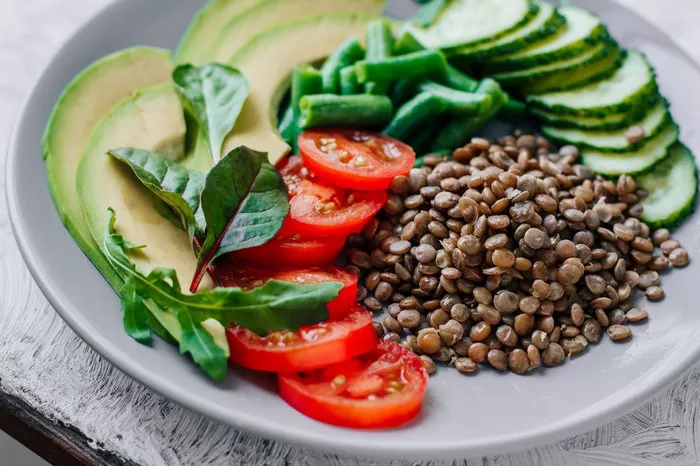Flaxseed, also known as linseed, has gained widespread popularity in recent years due to its impressive nutritional profile and potential health benefits. Packed with essential vitamins, minerals, and fiber, flaxseed is a versatile superfood that can be easily incorporated into a variety of dishes, from smoothies and oatmeal to baked goods and salads. In this comprehensive guide, we’ll delve into the vitamin content of flaxseed, exploring the essential vitamins it contains and their potential health benefits.
Understanding Flaxseed: A Nutritional Powerhouse
Flaxseed is derived from the flax plant (Linum usitatissimum) and has been cultivated for centuries for its culinary and medicinal properties. It is rich in omega-3 fatty acids, lignans, fiber, and protein, making it a valuable addition to any diet. Flaxseed is available in whole seed, ground, or oil form, with each offering its unique set of nutritional benefits.
Exploring the Vitamin Content of Flaxseed
While flaxseed is best known for its omega-3 fatty acids and lignans, it also contains a range of essential vitamins that contribute to overall health and well-being. Let’s take a closer look at the key vitamins found in flaxseed:
1. Vitamin B1 (Thiamine):
Vitamin B1 is essential for converting carbohydrates into energy and supporting proper nerve function. Flaxseed contains a moderate amount of vitamin B1, making it a valuable addition to a balanced diet.
2. Vitamin B2 (Riboflavin):
Vitamin B2 plays a crucial role in energy metabolism, cell growth, and red blood cell production. Flaxseed contains a moderate amount of riboflavin, making it beneficial for overall health and vitality.
3. Vitamin B3 (Niacin):
Vitamin B3 is important for maintaining healthy skin, digestive function, and nervous system health. Flaxseed contains niacin in moderate amounts, contributing to its overall nutritional value.
4. Vitamin B6:
Vitamin B6 is involved in over 100 enzymatic reactions in the body, including protein metabolism, hormone production, and neurotransmitter synthesis. Flaxseed contains a modest amount of vitamin B6, supporting overall health and well-being.
5. Folate (Vitamin B9):
Folate is essential for DNA synthesis, cell division, and fetal development during pregnancy. Flaxseed contains a moderate amount of folate, making it a valuable source of this important nutrient.
6. Vitamin E:
Vitamin E is a powerful antioxidant that helps protect cells from oxidative damage and supports immune function. Flaxseed is an excellent source of vitamin E, particularly when consumed in its oil form.
7. Vitamin K:
Vitamin K plays a crucial role in blood clotting, bone health, and cardiovascular function. Flaxseed contains vitamin K in modest amounts, contributing to its overall nutritional profile.
Potential Health Benefits of Flaxseed Vitamins
The vitamins found in flaxseed contribute to its potential health benefits, which may include:
Heart Health: The omega-3 fatty acids and vitamin E found in flaxseed may help reduce inflammation, lower blood pressure, and improve cholesterol levels, thereby supporting heart health.
Brain Function: Vitamin B6 is involved in neurotransmitter synthesis, while vitamin E acts as an antioxidant, both of which may support brain function and cognitive health.
Skin Health: Vitamin E is known for its skin-nourishing properties, helping to maintain skin elasticity, hydration, and overall health.
Bone Health: Vitamin K is essential for bone mineralization and may help reduce the risk of osteoporosis and fractures when consumed as part of a balanced diet.
Incorporating Flaxseed into Your Diet
Adding flaxseed to your diet is easy and convenient, and there are numerous ways to enjoy its nutritional benefits:
Ground Flaxseed: Sprinkle ground flaxseed on yogurt, cereal, oatmeal, or salads for a nutritious boost of fiber, omega-3 fatty acids, and vitamins.
Flaxseed Oil: Use flaxseed oil as a dressing for salads, vegetables, or cooked dishes to add a rich, nutty flavor and a dose of vitamin E.
Smoothies: Blend ground flaxseed into smoothies or protein shakes for an extra nutritional punch.
Baking: Incorporate ground flaxseed into baked goods such as muffins, bread, or pancakes for added fiber and vitamins.
Conclusion: Harnessing the Nutritional Power of Flaxseed Vitamins
Flaxseed is a nutritional powerhouse packed with essential vitamins, minerals, and other beneficial compounds. By incorporating flaxseed into your diet, you can reap the numerous health benefits associated with its vitamin content, including heart health, brain function, skin health, and bone health. Whether consumed as ground seed, oil, or added to recipes, flaxseed offers a convenient and versatile way to boost your overall nutritional intake and support your well-being. Embrace the nutritional treasure trove of flaxseed and enjoy the health benefits it has to offer.
[inline_related_posts title=”You Might Be Interested In” title_align=”left” style=”list” number=”6″ align=”none” ids=”7701,7653,7650″ by=”categories” orderby=”rand” order=”DESC” hide_thumb=”no” thumb_right=”no” views=”no” date=”yes” grid_columns=”2″ post_type=”” tax=””]

































